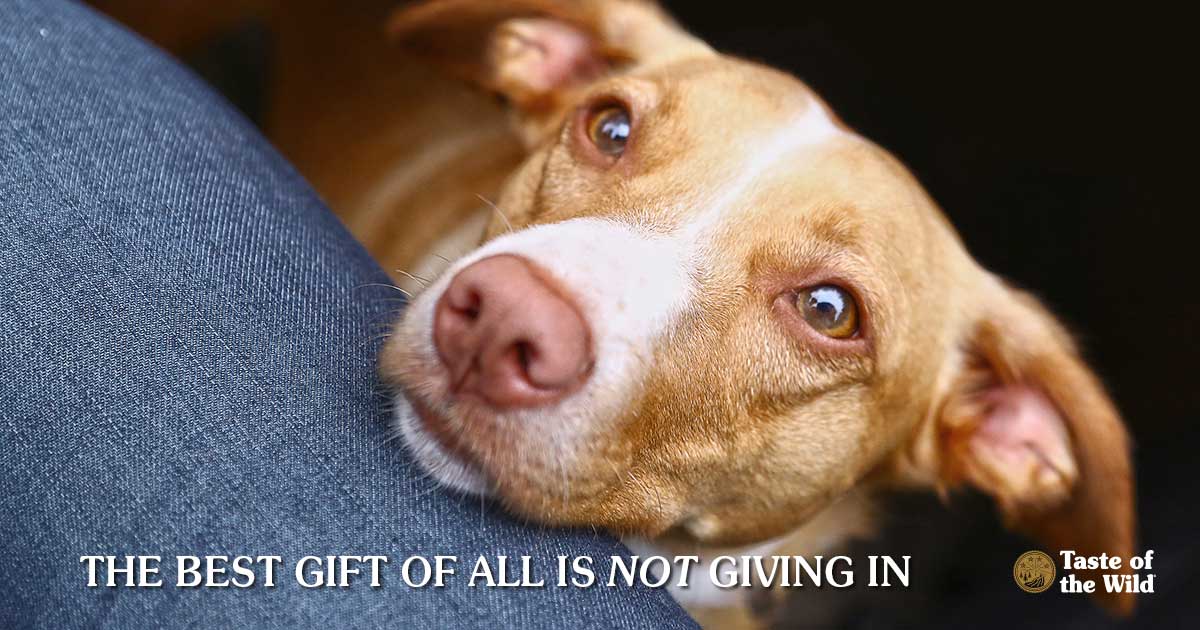
With all the parties, events and gatherings this holiday season, who can resist those buttery rolls or that second helping of pork roast and gravy? Certainly not most of us. Nor our pets, who cast their beseeching brown eyes at us from under the tablecloth. And the holidays are all about sharing, right?
The trouble is, too much rich food can land some pets at the veterinary clinic with gastrointestinal upset. Of course, any abrupt change in your pet’s diet can lead to vomiting and diarrhea, but some pets may succumb to a more serious condition called pancreatitis.
What is pancreatitis?
Simply put, it’s an inflammation of the pancreas, an organ tucked where the stomach attaches to the small intestine. Normally, the pancreas is responsible for making and secreting digestive enzymes and insulin. But when it becomes inflamed, the digestive enzymes can literally start digesting the organ itself, leading to inflammation and abdominal pain. Severe inflammation can lead to shock and may be life-threatening.
What are the signs of pancreatitis in pets?
In dogs, the signs can be mild and often mistaken for indigestion, such as a loss of appetite, diarrhea and vomiting. But they can also be severe and life-threatening, including lethargy, abdominal pain and shock. Cats tend to have more subtle signs, such as lethargy, loss of appetite, dehydration and weight loss. For some pets, there may be a sudden onset of signs, while others may have chronic pancreatitis, with signs that ebb and flow.
What causes it?
In dogs, eating rich, high-fat foods is the primary cause of pancreatitis, although not the only cause. Miniature schnauzers appear to be prone to the condition, so there may also be a genetic component. Some medications, like those used to treat epilepsy, may contribute to pancreatitis as well.
In cats, high-fat foods are less of a direct cause of pancreatitis, but because it can be associated with other inflammatory conditions in the abdomen, such as inflammatory bowel disease, inflammation of the liver and/or gall bladder and fatty liver disease, it’s best to avoid sudden additions of rich or fatty table scraps. Trauma such as being hit by a car, infectious diseases such as feline distemper and some toxins and medications are also potential causes for cats.
In many cases, a specific cause may not be found. Although it can happen at any age in any pet’s life, middle-aged to older cats and dogs and those who are overweight are at higher risk for the condition.
How is it diagnosed?
Because the signs of pancreatitis can be similar to other conditions, it can be difficult to diagnose. After a physical exam, your veterinarian will most likely recommend blood tests, X-rays or an abdominal ultrasound. Additional tests may also be recommended to rule out or identify other underlying conditions.
Treating pancreatitis
For mild cases of pancreatitis, your veterinarian may recommend outpatient treatment that may include anti-vomiting and/or pain medications and special food.
Pet nutrition is an important part of treatment. While it was previously believed that food should be withheld for a day or two, most veterinarians now try to encourage eating as soon as possible.
A special fat-restricted diet is generally recommended for most dogs. This can be problematic for cats, because these diets tend to replace fats with carbohydrates, which may be difficult for some cats to digest. Your veterinarian can recommend a diet that’s right for your cat.
In severe cases of pancreatitis, the pet may need to be hospitalized and put on intravenous fluids. Some cats may require feeding tubes to help make sure they receive proper nutrition. Other underlying diseases that may be contributing to pancreatitis should be treated as well.
Pets with mild cases of pancreatitis usually recover with time. Severe cases can lead to medical complications. And pets may develop diabetes later as a result of the pancreatitis.
Can it be prevented?
Certainly, you can help prevent gastrointestinal upset by keeping your pet’s diet consistent and not overindulging them with treats during the holiday season. While pancreatitis may not always be prevented, it helps to substitute high-fat holiday treats from the table with fresh vegetables, including cooked carrot and squash or steamed green beans or broccoli. And your veterinarian can always recommend a treatment specifically for your dog or cat.
So as pleading as those big eyes might be, try to avoid indulging your little helper this holiday season. The best gift of all is short- and long-term health.
The information in this blog has been developed with our veterinarian and is designed to help educate pet parents. If you have questions or concerns about your pet's health or nutrition, please talk with your veterinarian.
